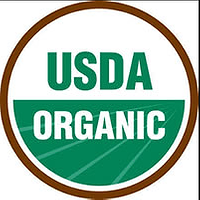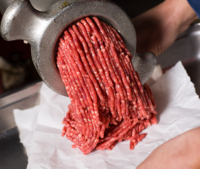This week, the U.S. Department of Agriculture (USDA) ruled that carrageenan—an emulsifier—can continue to be used in organic food production, despite The National Organic Standards Board's (NOSB) recommendation to ban the ingredient.
Carrageenan, commonly used as a thickening ingredient in foods like ice cream and high-protein beverages, is derived from seaweed. For beverages that require a shelf-life, carrageenan helps to keep the product smooth despite how long it sits untouched.
The use of carrageenan has long been a source of contention within the food industry. Supporters of pure organic living have tried to ban carrageenan, saying that animal tests have showed signs of intestinal problems after carrageenan consumption. There are also some who believe that the presence of carrageenan in organic food weakens the perceived power of the USDA Organic food label. However, the organic food industry itself has always argued that carrageenan is safe, not to mention that there is no other ingredient that can do what carrageenan does.
USDA issued a statement this week in the Federal Register, saying that it "found sufficient evidence in public comments to the NOSB that carrageenan continues to be necessary for handling agricultural products because of the unavailability of wholly natural substitutes."
In 2016, NOSB voted to remove carrageenan from its list of approved organic ingredients, citing proof that there are alternative, safer ingredients that can be used in carrageenan’s place. But because the organization is merely an organic industry advisory group, the USDA had no obligation to adhere to NOSB’s recommendation.
More on carrageenan safety:
Will Food Science Prevail?
Will (or Can) Food Science Prevail in Today’s World?
Safety is a Cornerstone of Ingredient Sustainability
The Need for Ingredients That Improve the Health and Safety of Shelf-Stable Drinks
Sign up for Food Safety Magazine’s bi-weekly emails!
Subscribe to our podcast: Food Safety Matters!




